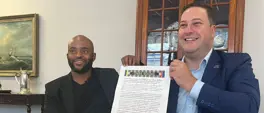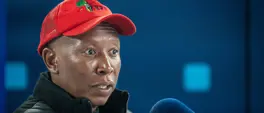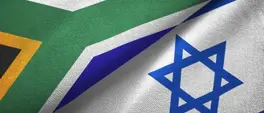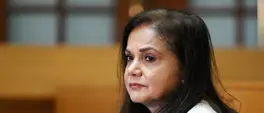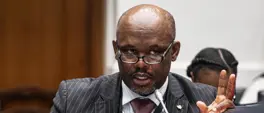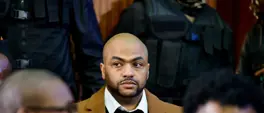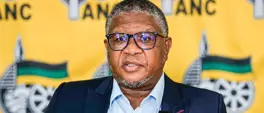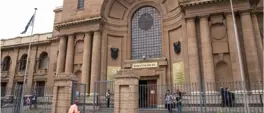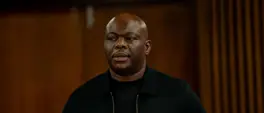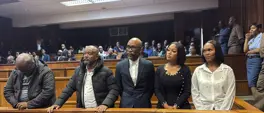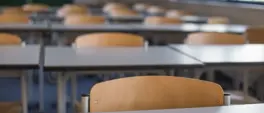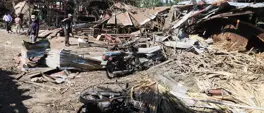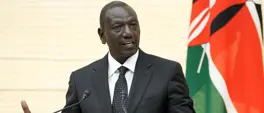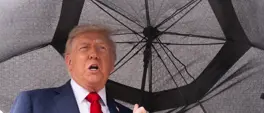Russia says must be part of Ukraine security guarantees talks
AFP
21 August 2025 | 3:59NATO military chiefs, meanwhile, held a virtual summit on security guarantees for Ukraine, the latest in a flurry of global diplomacy aimed at brokering an end to the nearly three-and-a-half-year conflict.
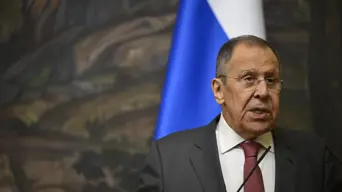
FILE: Russian Foreign Minister Sergei Lavrov speaks during a joint press conference with his Kuwaiti counterpart following their talks in Moscow on 28 October 2024. Picture: AFP
MOSCOW - Russia said on Wednesday it had to be part of any discussion on security guarantees for Ukraine and downplayed the likelihood of an imminent summit with President Volodymyr Zelensky, tempering hopes for a quick peace deal.
NATO military chiefs, meanwhile, held a virtual summit on security guarantees for Ukraine, the latest in a flurry of global diplomacy aimed at brokering an end to the nearly three-and-a-half-year conflict.
"On #Ukraine, we confirmed our support. Priority continues to be a just, credible and durable peace," the chair of the alliance's military committee, Admiral Giuseppe Cavo Dragone, wrote on X after the meeting.
Russia's Foreign Minister Sergei Lavrov earlier warned that "seriously discussing security guarantees without the Russian Federation is a utopia, a road to nowhere".
Moscow signed the Budapest Memorandum in 1994, which was aimed at ensuring security for Ukraine, Belarus and Kazakhstan in exchange for them giving up numerous nuclear weapons left from the Soviet era.
But Russia violated that first by taking Crimea in 2014, and then by starting a full-scale offensive in 2022, which has killed tens of thousands of people and forced millions to flee their homes.
On Tuesday, top US officer Dan Caine, Chairman of the Joint Chiefs of Staff, held talks with European military chiefs on the "best options for a potential Ukraine peace deal", a US defence official told AFP.
In eastern Ukraine, far from the diplomatic deliberations, Russian forces claimed fresh advances on the ground and Ukrainian officials reported more deaths from Russian attacks.
DIPLOMATIC FLURRY
US President Donald Trump brought Zelensky and European leaders to the White House on Monday, three days after his landmark encounter with Russian President Vladimir Putin in Alaska.
Russia's long-serving foreign minister downplayed the meeting in Washington, describing it as a "clumsy" attempt to change the US president's position on Ukraine.
Trump, long a fierce critic of the billions of dollars in US support to Ukraine, earlier said European nations were "willing to put people on the ground" to secure any settlement.
He ruled out sending US troops but suggested the country might provide air support.
Russia has long said it will never tolerate the presence of any Western troops in Ukraine.
While Trump said Putin had agreed to meet Zelensky and accept some Western security guarantees for Ukraine, Russia has not confirmed this.
Lavrov also cast doubt on an imminent meeting between the sworn enemies, saying that any summit between Putin and Zelensky "must be prepared in the most meticulous way" so it does not lead to a "deterioration" of the situation surrounding the conflict.
FRESH RUSSIAN STRIKES
Russia's defence ministry said on Telegram Wednesday that its troops had captured the villages of Sukhetske and Pankivka in the embattled Donetsk region.
They are near a section of the front where the Russian army broke through Ukrainian defences last week, between the logistics hub of Pokrovsk and Kostiantynivka.
"Our units are engaged in heavy defensive battles against superior Russian forces," said Ukraine's commander-in-chief Oleksandr Syrsky.
Six civilians were killed by Russian attacks across eastern and southern Ukraine Wednesday, local authorities said.
One person died in Russia's western Bryansk region as a result of a Ukrainian drone strike, the local governor said.
Russia's aerial attacks on the northeastern town of Okhtyrka in the Sumy region wounded at least 14 people, including three children, according to regional governor Oleg Grygorov.
Zelensky said these latest strikes showed "the need to put pressure on Moscow", including through sanctions.
Get the whole picture 💡
Take a look at the topic timeline for all related articles.
